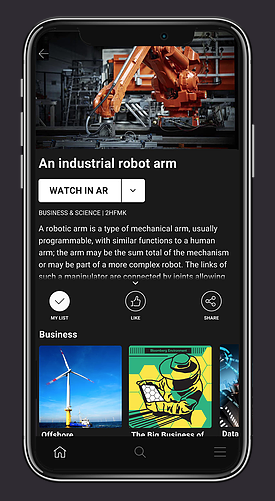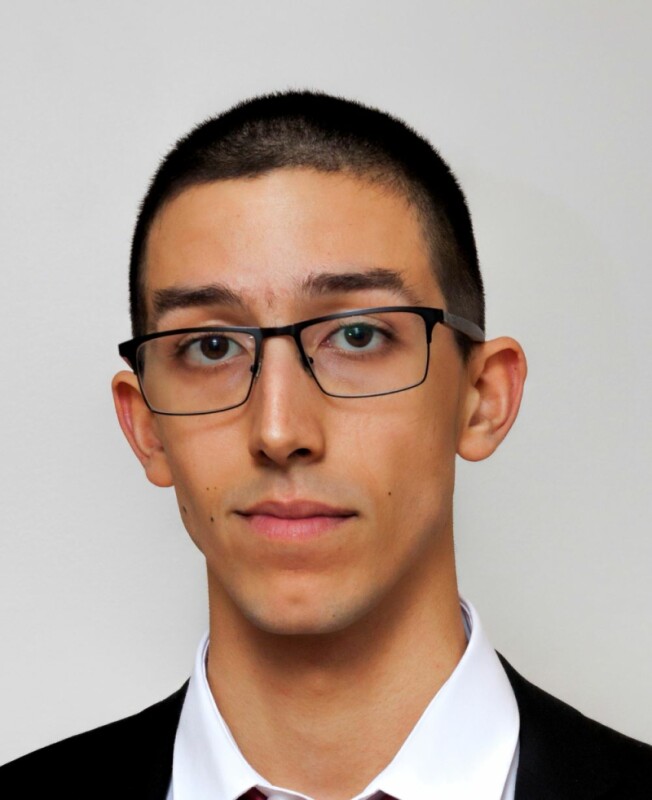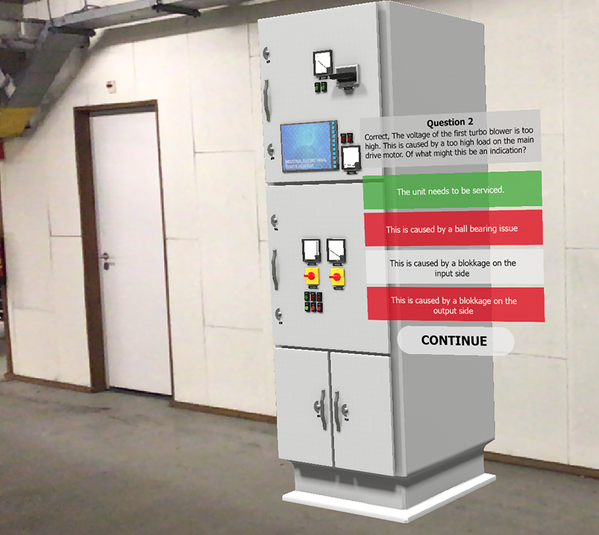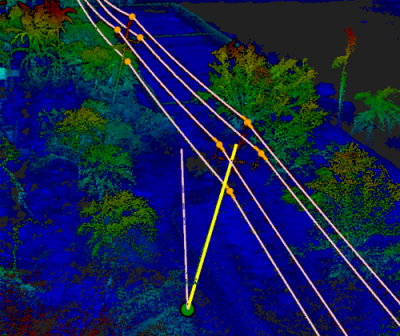Fectar Studio, a cloud-based Content Management System (CMS) for AR and VR, allows anyone, with or without any technical skills, to develop and publish interactive AR and VR presentations.
As the AR and VR industries keep on growing, organizations, businesses, schools, and more start to see the technology’s potential to speed up workflows efficiently and effectively, deliver improved training, and better visualize ideas, concepts, prototypes and even final products, all at a reduced cost. However, developing AR and VR content might not be easy for everyone, hence why Fectar saw an opportunity to join the industry with Fectar Studio.
Just like CMS systems such as Drupal, WordPress, and Joomla allow users to easily build websites, Fectar Studio aims to do something similar but for AR and VR. The platform enables content creators to publish interactive AR and VR presentations to Android and iOS smartphones and tablets, as well as to VR devices including Oculus GO and Oculus Quest, with plans to introduce compatibility with more devices such as the HTC Vive within the coming months.
“AR and VR just got easy. Within just a few weeks of our initial launch in 2019, the level of interest and adoption was astounding,” said Eugène Kuipers, CEO and Founder of Fectar. “We’ve already witnessed fantastic results, especially in the education field. A number of our users reported double-digit increases in revenue and reductions in training costs while simultaneously reaching a whole new level of customer and student engagement. We really are at the start of a new era of content creation, and we’re confident this is a true game changer for the industry.”
Unlike other CMS tools that usually only offer content to users, Fectar Studio provides improved features and functionality, such as buttons, hyperlinks, questions, navigation, audio, and more to create engaging interactive 3D AR/VR content, while allowing users to track how their creations are being used with easy to access statistical data. Also, Fectar Studio’s content is cross platform, meaning all creations are available for AR and VR devices to view. And because it is cloud based, users don’t need to set up anything, making it more accessible to everyone. All that’s needed, is an account.
“A lot of AR and VR startups are focusing on the possibilities of this technology has to offer in the future, but they forget about today,” Kuipers continued. “A free version of our platform is available to everyone who wants to experiment. With the growing numbers of our users, we gain more and more insight in viewing and learning behavior in AR. This enables us to make the best Content Management System for our clients, so that they can offer amazing AR and VR experiences.”
According to the company, Fectar Studio is already being widely adopted within the education, media and design, manufacturing, retail, and real estate sectors. The company has partnered with SPARK Makers zone, an innovation hub for real estate in the Netherlands that explores new production methods, such as 3D printing, robotics and more.

“Together we have set up an AR Training and Information Center (ARTIC), and you can walk around in the factory where a holographic instructor tells about safety and instructions,” Kuipers continued. “[Also], one of our clients is developing a new type of metal building structure, which enables constructions to be built in less time, with lower cost and with a lower environmental footprint. These structures can be shown to customers in augmented reality in different sizes, including 100% size (up to 10 by 10 by 5 meters).”
Founded in 2018 as SpotOn.io, Fectar originated from a new vision three friends had – Kuipers, Product Director & Co-founder Rens Lensvelt, and Content Management specialist Dennis de Laat – and a script to view AR on a 4-year-old ordinary smartphone written by Lensvelt. In 2019, Fectar made an analysis of the Dutch market for Augmented Reality (AR) based on 18 different market studies and articles, concluding the Dutch market will grow to approximately $615M in 2023 and $2B in 2025. The company’s mission is to make the AR dream come true and introduce AR and VR to as many people as possible.
“We have seen immediate added value for AR as a tool for Lifelong/ Smart Learning concepts,” Kuipers told SPAR 3D. “These learning principles work very well if the steps/rehearsals are high engagement and high involvement for learners. In our free app, you can see a part of a safety instruction for offshore wind turbine service engineers. All engineers must follow a 6 days safety course. Within 2 weeks after this course, they can rehearse a scenario in Augmented Reality: a visual inspection of the bottom section of an offshore wind turbine. The scenario is led by a holographic instructor and learners have to answer questions. They get immediate feedback on their answers.”
On a personal note, we asked Kuipers if there was anything he expected or would like to see happening in the VR/AR space in 2020.
“Compared to 2018 and 2019, you can see some fundamental trends taking place,” he answered. “First of all, the number of smartphones that are able to support handheld AR: reaching almost 2 billion devices (very important for ‘Mobile Only’-markets!). Second, schools and universities are speeding up their efforts. The cost of creating AR and VR lessons are significantly lower than one or two years ago. Third, a dramatic increase in the demand for AR/ VR engineers. Fourth: 3D modeling is also taking up speed (look for instance at the growing number of users at Sketchfab – 100k monthly). This helps content creation through the availability of (cheap) 3D models and easier to create (for instance with photogrammetry). And finally, almost biweekly new AR Head Mounted Displays are introduced at pricing lower than $1.000.”
Available now, Fectar Studio features a subscription-based payment model and a free 14–day trial. Also, the free Fectar app allows Android and iOS users to view more than 100 different free use cases created by partners.






